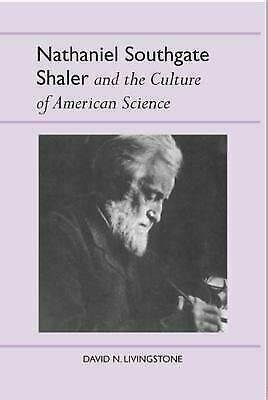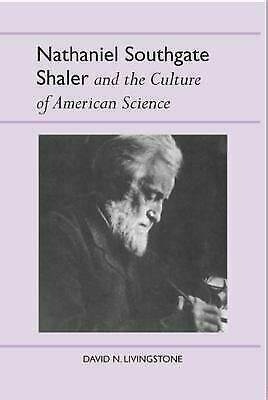Nathaniel Southgate Shaler and the Culture of American Science
University of Alabama Press
Nathaniel Southgate Shaler and the Culture of American Science is the first book-length study of the man who served a Harvard’s Professor of Geology and Paleontology during the Darwinian era. Shaler was a student of Louis Agassiz and went on to a successful, multifaceted career as a geologist, geographer, educator, humanist, and poet. Livingstone employs a thematic approach to chart Shaler’s career against the broader intellectual currents of America’s Gilded Age. After tracing Shaler’s life story from his boyhood in Kentucky through his student years at Harvard, his service with the Geological Survey, and eventually his years as Dean of Harvard’s Lawrence Scientific School, the author examines Shaler’s evolutionary vision and portrays his strategic efforts to reconcile the nineteenth century’s scientific and religious world views.
Livingstone assesses Shaler’s prolific writings, including those on race, which demonstrate a typical concern to provide a “scientific” perspective on the political questions of immigration restriction and eugenic control. IN addition, the book explores his efforts to interweave geography and history, particularly in relation to the American frontier; and his contributions to geology and geomorphology. The portrait of Shaler is completed with a review of his educational thinking and his role in establishing the American Summer School and in furthering scientific and technological education.
Nathaniel Southgate Shaler emerges from Livingstone’s work as a distinctive figure in the development of the new scientific culture, a figure who provides a focal point for assessing the impact of evolutionary naturalism on late-nineteenth-century American thought.
“Researched thoroughly and documented carefully . . . Livingstone’s analysis of Shaler’s writings will be useful to all interested in the broad connections among science, theology, and philosophy.”--Scientist
“Livingstone judges Shaler’s proper place in the advance of American science. From his post at Harvard, Shaler coached the development of geography and its extensions into geology, ecology, and anthropology throughout the last quarter of the 19th century, and Livingstone attempts to sort out what should properly be credited to Shaler on a playing field crowded with legendary scientists. . . . [F]or the historian of any of these subjects, this work may well prove a gold mine.”--Science Books and Film
‘Very well written and based on sound scholarship, through documentation, and thoughtful interpretation. . . . Livingstone’s fine and exhaustive work and his sensitive interpretation may well be regarded as definitive in establishing Shaler’s niche in the philosophical culture of American science.’--Earth Sciences History
David N. Livingstone is Research Officer and Curator of Maps, The Queen’s University of Belfast.






